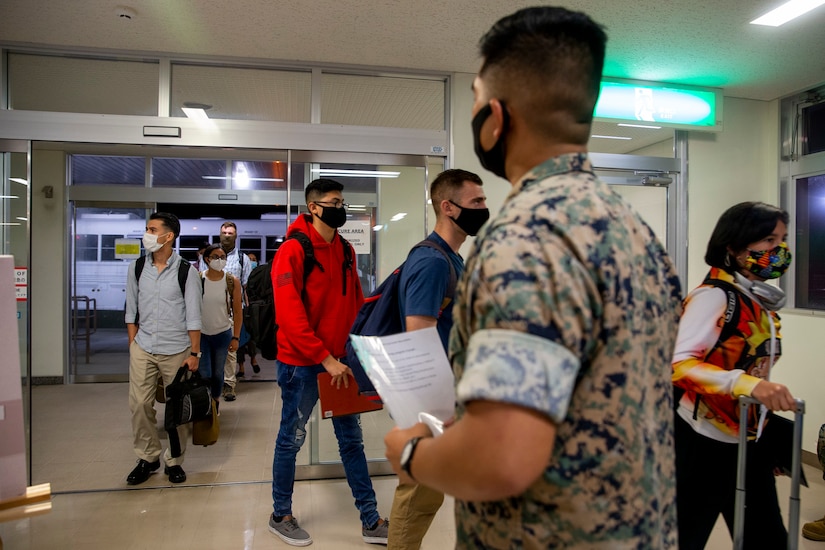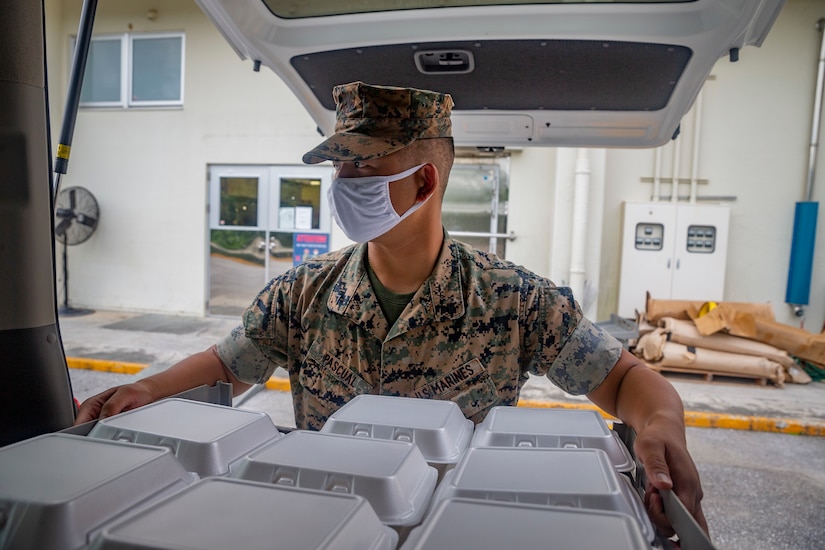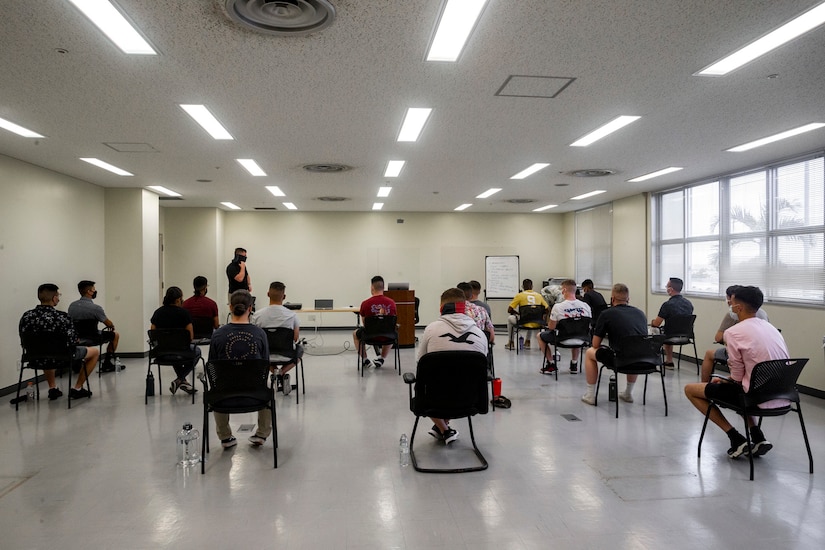''It's a challenge,'' said Marine Corps Lance Cpl. Preston Batson, the assistant barracks manager for the Joint Reception Center Marines. New Marines are required to fulfill a 14-day restriction-of-movement order when they arrive on Okinawa. ''The JRC staff and I are always on the go,'' Batson said. ''While we wear masks and stay 6 feet apart, there's always a chance to be exposed to COVID-19. We are surrounded by Marines new to the island who have executed the 14-day restriction of movement and Marines whose flight has just landed to Okinawa.''

Despite COVID-19 restrictions, JRC Marines have continued to assist hundreds of accompanied and unaccompanied service members with their overseas transition.
New, unaccompanied Marines who are E-5 and below and ''greenside'' sailors — Navy personnel attached to a Marine Corps unit — step off the Patriot Express into the Kadena Air Base terminal to be greeted by the JRC staff. Batson, eager to welcome the Marines and sailors, helps facilitate the process of checking in the Marines and ensuring their well-being.
''Our job is continuous,'' said Batson, also a driver for JRC. ''We live with the JRC Marines, so when we go home we are still with them — always on call.''
Though all inbound personnel to Okinawa must comply with the 14-day restriction of movement, the JRC staff helps ensure their safety by conducting wellness checks three times a day, bringing meals to them and ensuring cleanliness.

''On average, we have 60 or more Marines and sailors in both barracks,'' said Batson. ''COVID-19 has not stopped JRC; we have only adjusted what we do.''
After the 14-day ROM cycle, the Marines execute their week-long orientation to the island. Before the pandemic, the JRC Marines had classes every day, and, toward the end of the week, they would visit Hacksaw Ridge. Health protection condition restrictions limit the staff to teaching only the most vital classes. Under current conditions, the battle site tours have been suspended.
''COVID-19 has put a hold on some of the things we do, but we always adapt and overcome,'' said Marine Corps Cpl. Daniel Chavez, a troop handler with JRC. ''It's kept us on our toes, and we adjusted, as needed, to continue helping the Marines in JRC.''
With COVID-19 still prevalent, it has caused an adjustment to the organization and procedures of JRC; however, the staff has worked hard to overcome and push forward.
''There is a lounge for the JRC Marines to interact with one another — of course, staying 6 feet apart and wearing a mask,'' Batson said. ''There is a TV, video games, board games and books for them to use. The biggest thing is to make sure they are OK. I don't like to see a Marine sad. I want to do everything I can to make them smile and know we are here for them.''

The JRC staff helps establish principles for other noncommissioned officers to uphold when placed in a leadership position with Marines under their command.
''In a way, we are a mentor to these Marines,'' said Chavez. ''NCOs should be watching out for their Marines, making sure they get chow, and be somebody who helps with anything they need.''
The main effort of the JRC staff is to take care of every Marine and sailor who comes through the program.
''At the end of the day, it's our job as the JRC staff to make sure the new Marines and sailors are safe,'' said Batson. ''A part of keeping them safe is checking on them multiple times a day and ensuring they are healthy, physically and mentally. They are important.''
(Marine Corps Lance Cpl. Karis Mattingly is assigned to Marine Corps Installations Pacific.)








No comments:
Post a Comment